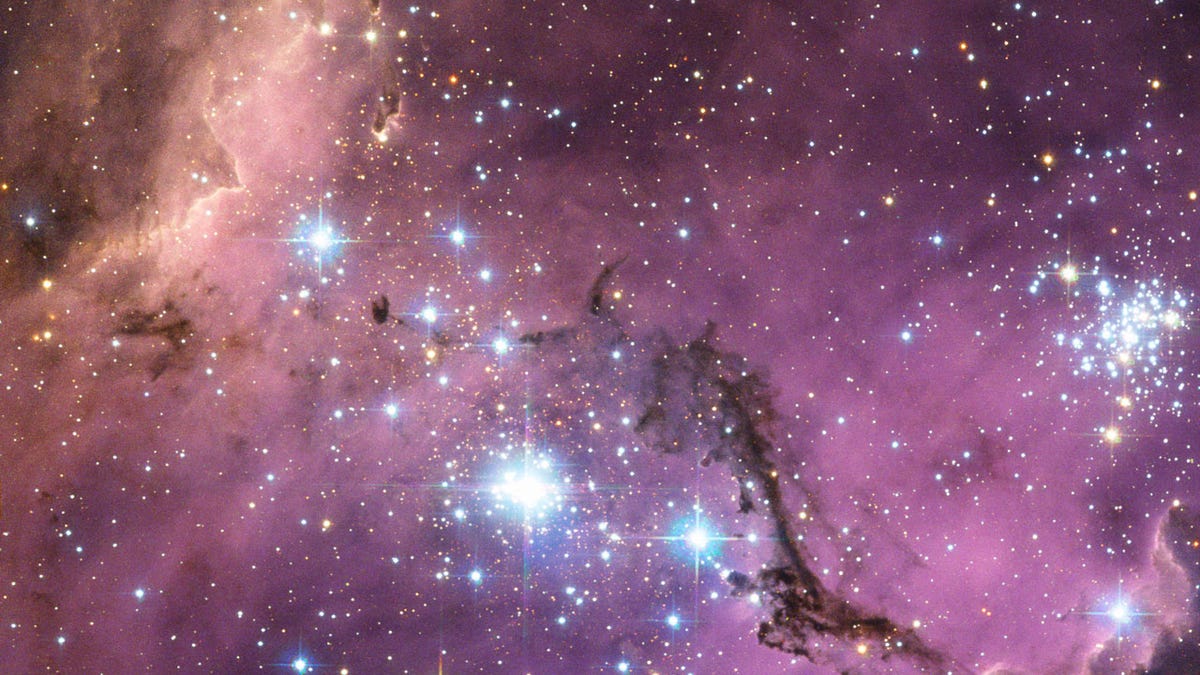Cosmic collision billions of years off could fling Earth out of Milky Way
Our galaxy may be headed for a crash that could create space fireworks and exile our whole solar system. Fortunately, we have a little time to prepare.

The Large Magellanic Cloud, a satellite galaxy of the Milky Way, is about 200,000 light-years from Earth. It could eventually collide with our galaxy, astrophysicists say.
Day to day here on Earth, our biggest threat from space is probably some undetected asteroid smashing into us, but astrophysicists looking at the universe on a much larger scale warn that another kind of collision could also impact our planet in the distant future.
A team led by researchers from the UK's Durham University says the threat of another galaxy colliding with the Milky Way could happen much sooner than previously thought and might send our entire solar system hurtling off in a new direction.
"There is a small chance that we might not escape unscathed from the collision between the two galaxies which could knock us out of the Milky Way and into interstellar space," Marius Cautun, a postdoctoral fellow at Durham's Institute for Computational Cosmology, said in a statement.
Cautun is lead author of a paper being published Friday in the journal Monthly Notices of the Royal Astronomical Society.
Fortunately for us, and probably for everything and everyone we'll ever know, this collision between the Milky Way and the smaller galaxy known as the Large Magellanic Cloud (LMC) probably won't happen for 2 billion years. But that's still much sooner than the previously predicted impact with our neighboring Andromeda galaxy set to happen in 8 billion years.
"While 2 billion years is an extremely long time compared to a human lifetime, it is a very short time on cosmic timescales," Cautun said.
The LMC is one of a group of smaller satellite galaxies that actually orbit the Milky Way. New calculations suggest it has twice as much dark matter as previously thought and that all that previously undetected mass could mean it's slowing down and will be unable to escape the gravitational pull of the Milky Way.
The scientists say the collision could also wake up the Milky Way's dormant black hole, which would immediately begin to feed on nearby gas and grow in size by an order of magnitude.
"Barring any disasters, like a major disturbance to the solar system, our descendants, if any, are in for a treat: a spectacular display of cosmic fireworks as the newly awakened supermassive black hole at the center of our galaxy reacts by emitting jets of extremely bright energetic radiation," said co-author and Durham professor Carlos Frenk.
Fortunately, that garish galactic gala will be far enough away that it's unlikely to affect life on Earth. Of course, as Frenk points out, we might not be around to see it if the initial collision flings us beyond the bounds of the Milky Way.
NASA turns 60: The space agency has taken humanity farther than anyone else, and it has plans to go further.
Crowd Control: A crowdsourced science fiction novel written by CNET readers.

